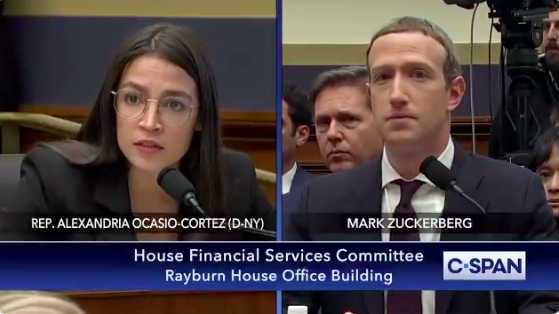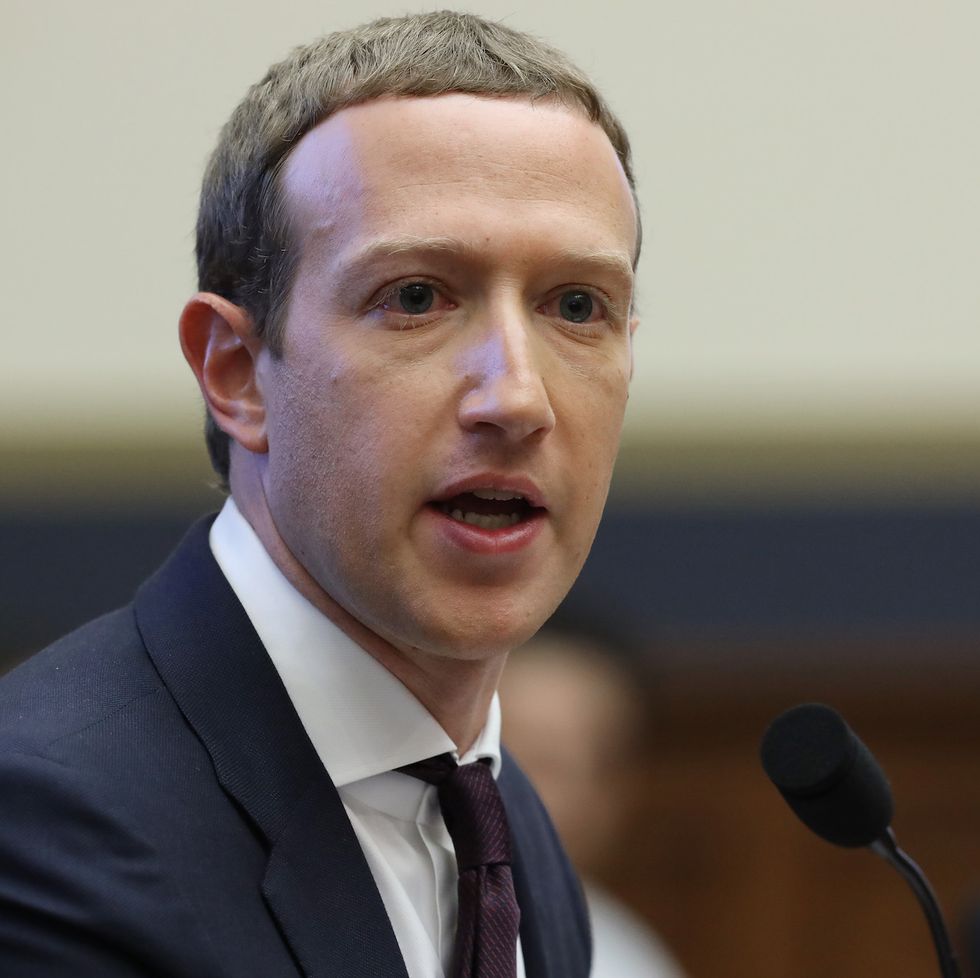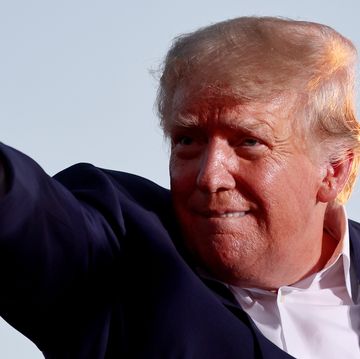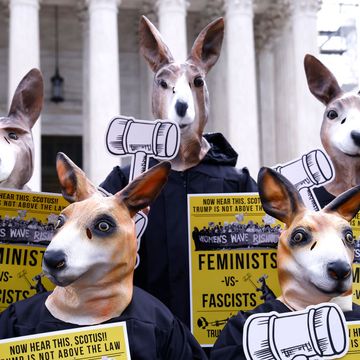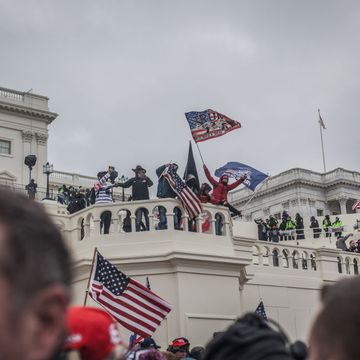Facebook began as a tool to rate the relative attractiveness of women at Harvard, and now is a machine built in significant part to deliver information to (old) people which keeps them engaged on the platform. Also, people have at times used it to communicate with friends and share photos of their kids. But the company has now truly run amuck. It's a Silicon Valley behemoth that has seized on the refusal—or incapability—of lawmakers from both parties to regulate it and stretched its tentacles every which way while accepting little of the responsibility that comes with growing so large and so powerful.
That came to a head in the 2016 election, when the platform became a prime source of political information in America. Outlets and sources that abide by journalistic standards leaned on it to reach customers, which made them dependent on Facebook for web traffic and the advertising revenue that comes with it. (This did not end well.) But actual Fake News sources—like the infamous kids in Macedonia or the Russian disinformation campaign—also saw potential in the platform. One of the top stories of the entire 2016 campaign had the headline, "Pope Francis shocks world, endorses Donald Trump for president." Obviously, this did not happen.
Facebook (along with Google) has assumed the role of informational gatekeeper in our society, one formerly held by major news networks and newspapers. Except it has assumed none of the responsibility that comes with that, refusing, in any consistent way, to filter the information served to great masses of people based on quality and accuracy. The result is that the Facebook-using public has been exposed to a firehose of misinformation, including some served up by people trying to undermine our democracy. It is poisoning us.
Facebook has shown little sign it learned from its role in 2016, not least when it was announced that politicians will be free to run political ads with obvious lies in them—ads that major television networks have refused to run. This is an obvious problem when the incumbent president has, by some measures, made 13,000 false claims in office. It's another example of Facebook's refusal to admit it is a publisher of information, and that it bears some responsibility for the quality of information it's feeding people. (According to a 2017 Pew Research study, 45 percent of Americans get their news from Facebook. God help us.)
Actually, Mark Zuckerberg has established some standards: Facebook will not allow ads that target voter suppression. It's just you can lie about anything else as long as you pay. When he testified before Congress Wednesday, Alexandria Ocasio-Cortez seized on this (non-)distinction.
The New York congresswoman beautifully illustrated why this is all absurd. Zuckerberg says they will take down lies that seek to suppress voters—say, by telling people who tend to vote for your opponent's party the wrong election date—but not lies that smear a candidate's record. But what if, by smearing their record, you discourage people who otherwise might have gone out to vote for them? In fact, that's exactly what happened in 2016: the Russians specifically targeted black voters with disinformation geared towards discouraging them from voting. That was actually just one traditionally Democratic voting bloc that got this treatment. The trolls and fake-news pages did not have to tell people the wrong election date. They just smeared Hillary Clinton, over and over, until people started to think it wasn't worth going out to vote for her.
In this way, the distinction Facebook has made is arbitrary. Ocasio-Cortez successfully illustrated that Facebook has some standards—they just happen to fall short of preventing Donald Trump from spewing misinformation all over the platform in his manic quest to get reelected. It's almost like Zuckerberg and Co. are aware that a big chunk of their platform's activity now revolves around conservative sources serving conservative information to conservative Facebook users. After all, check out the top posts from October 21:
This is very commonly the case on any day. Conservative posts and pages dominate distribution, yet we are continually subjected to these spasms of victimhood about how conservatives are oppressed on social media. This is, of course, a classic reactionary tactic: claim bias to work the refs and move everything to the right. Ocasio-Cortez seized on that, too, in her questioning of Zuckerberg, wondering why the Daily Caller—which does indeed have a habit of employing people with ties to white nationalism—is a rubber-stamped fact-checker for Facebook. Zuckerberg offered something about how Facebook doesn't assess who'll do the fact-checking on its platform, that it's up to "the Independent Fact Checking Network" or, seconds later, "the International Fact Checking Network." This is misleading at best: the network certifies outlets, but Facebook chooses which ones get to work on its platform.
The basic fact is that Facebook is a publisher pretending not to be so that it can set whatever standards it wants for the quality of information on its platform without consequence. It just so happens these standards happen to value engagement and ad revenue over accuracy. We as a people will have to decide if we enjoy having the body politic poisoned day after day in the interests of Facebook shareholders. We should also decide whether a company as big and monopolistic as Facebook—or Google, or Amazon, or Apple—should be allowed to exist at all.
Jack Holmes is a senior staff writer at Esquire, where he covers politics and sports. He also hosts Unapocalypse, a show about solutions to the climate crisis.
